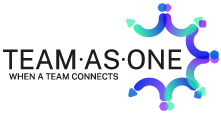Psychological Safety Training for Leaders
There is more into psychological safety training than checking boxes for businesses. It takes work to establish and preserve a culture where members of your team feel comfortable sharing thoughts, queries, worries, and errors. What was the outcome? Greater creativity, improved preventative and problem-solving techniques, and more prosperous businesses.
Let’s define the psychological safety training things first. A team’s collective notion that taking chances, voicing opinions and concerns, asking questions, and owning up to mistakes are all acceptable without fear of unfavorable outcomes is known as team psychological safety.

Consider a Group Where All Members Regularly Speak Up:
- What’s effective, so we can strengthen such initiatives.
- What’s not functioning, so we can reduce or enhance those elements.
The term ” psychological safety ” is popularized by a a Harvard organizational behavioral scientist, Amy Edmondson. She refers to psychological safety at work as a common belief among team members that the group is safe for taking interpersonal risks.
The Psychological Safety Training from TEAM.AS.ONE aims to create a high-performing culture by using a top-down and bottom-up strategy in which we:
- All team members should receive training on what constitutes a great culture so they will know what to say when they speak up and demand what they are not receiving.
- Give leaders at all levels the fundamental abilities they need to create a culture where team members feel free to be honest.
The programs boost workers’ confidence, strength, and general wellbeing by empowering them to offer and accept feedback, to respectfully decline requests when needed, and to communicate important details and concepts without worrying about criticism or reprisals.
A leader must act in a way that establishes the correct conditions in order to achieve psychological safety. This is a fine line to walk; psychological safety is hard to establish and easily lost without conscious effort.
The goals of psychological safety training are to lower obstacles to open communication and freedom of expression. It gives workers the self-assurance to speak up when necessary.
Sincerity is synonymous with kindness, while being pleasant frequently entails telling people what they want to hear rather than what they need to hear. Although a pleasant workplace may come out as welcoming and kind, it can also lead to relationship guardianship, office politics, and silos.
The Reasons Cultural Safety Training Is So Important

Establishing psychological safety in the workplace requires a unique and deliberate level of attention to detail, talent, and effort. It’s normal for people to be hesitant to voice their concerns to their supervisor, to withhold opinions, and to avoid asking inquiries.
However, silence destroys culture and leadership.
This, far more often than most managers realize, halts the free flow of innovative ideas, concerns, or significant work-related inquiries.
By encouraging open communication and valuing every voice, we not only strengthen our teams but also propel our organizations towards excellence.
Boosts Employee Self-Confidence:
Creating an environment where individuals can freely express themselves without fear of criticism or retaliation empowers them with a sense of peace and confidence. In such a culture, openness, active participation, and willingness to be vulnerable are embraced. This allows employees to leave their work-related stress at the workplace, sparing their families from its impact.
The psychological safety training program offered by TEAM.AS.ONE equips leaders with the inclusive, soft leadership qualities that build resilience and confidence in their workforce.
The most important lessons are not taught – they are learned – and sometimes the best lesson can be seeing your boss open up and ask for guidance, help and support or guidance. We all have important thoughts to share; It is much easier to express them when a leader is constantly discussing their mistakes, challenges and struggles. They show that imperfections are an important part of life, not something to hide.
Enhances Transparency with Supervisors:
With psychologically safety training, you can trust your leaders to tell the truth and these teams will last. Transparency ensures that all employees feel a sense of belonging and are aware of the company’s operations, as both financial and other information is shared and discussed openly.
Transparent messages from management inspire confidence and increase productivity. People also feel psychologically safer, which increases self-confidence and encourages the sharing of ideas. It goes through the organization.
Allows for Honest Input:
True feedback and radical honesty are only possible when people are sure that the purpose of the feedback is to help them learn and grow, and that it is not personal. A true suggestion includes the following key elements:
- Listen to the someone else point of view and take time to think about it for reflection.
- Acknowledge that the person you’re talking to is a person.
- Talk the way you want to be talked to and with the same respect that people want to talk to you.
- Expect disagreements to never get personal.
- Accept your mistakes and forgive others.

